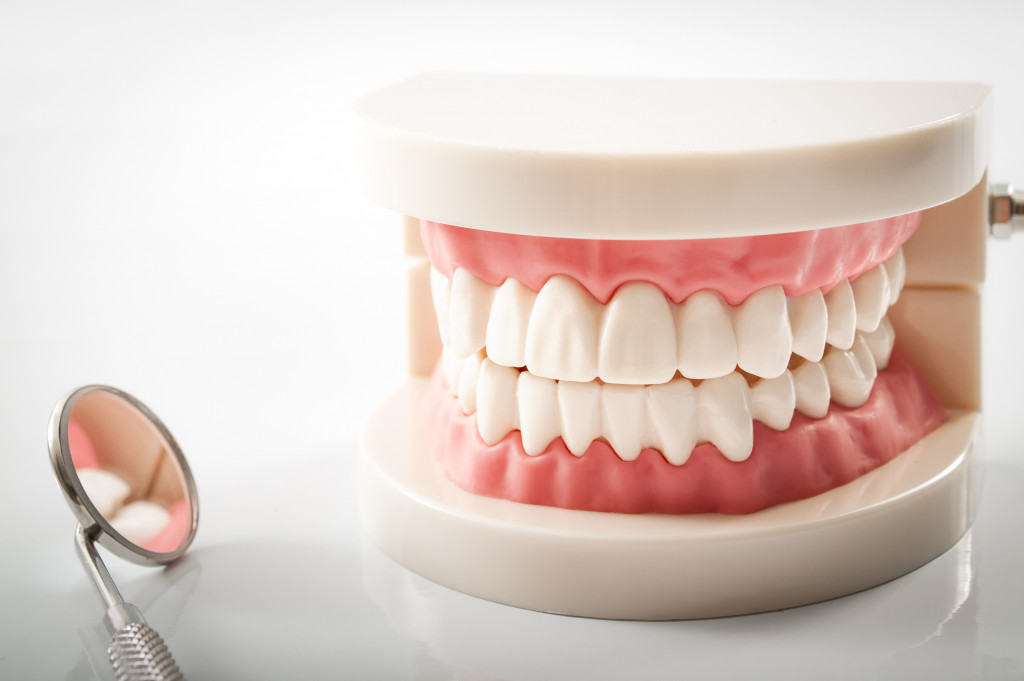- Poor oral health is linked to heart disease, diabetes, and respiratory infections, affecting overall well-being.
- Managing diabetes, quitting smoking, and maintaining an oral hygiene routine are integral to oral health.
- Oral surgeries like tooth extractions, dental implants, and jaw realignment can correct severe oral issues.
- Regular dental check-ups, brushing, flossing, and mouthwash usage are fundamental for maintaining a healthy mouth.
You’ve probably heard the phrase “healthy mouth, healthy body” before, but did you know that there’s actually a strong link between oral health and your overall well-being? Many people don’t realize just how important it is to take care of their teeth and gums, but neglecting your oral health can have severe repercussions for your overall health. This blog post will explore the surprising link between oral health and general well-being and give you some tips for keeping your mouth healthy.
Oral Health and Heart Disease
Did you know that there’s a strong link between poor oral health and heart disease? Research has shown that people with gum disease are more likely to have heart disease than those with healthy gums.
This is because the bacteria that cause gum disease can also enter your bloodstream and contribute to inflammation in other parts of your body, including your heart. By caring for your teeth and gums, you can reduce your risk of developing gum disease and heart disease.
For instance, brushing and flossing your teeth regularly can help keep bacteria levels under control, while getting regular dental check-ups is vital to detect any problems early on.
Oral Health and Diabetes
Another surprising link between oral health and overall well-being is diabetes. People with diabetes are more susceptible to gum disease, which can make it harder to control blood sugar levels. Gum disease can lead to inflammation, which in turn can impact insulin sensitivity and hinder the body’s efficient use of insulin. Here are some ways you can keep your mouth healthy if you have diabetes:
Set an Oral Health Routine
Adhering to a consistent oral health routine is crucial in maintaining a healthy mouth, thereby contributing to overall well-being. Regular brushing, flossing, and using mouthwash can significantly reduce the risk of gum disease and tooth decay. Brushing twice a day, flossing daily, and using mouthwash to clear away any residual bacteria is advisable. Regular visits to a dental professional for check-ups and cleanings should also be part of this routine.
Control Blood Sugar Levels

Blood sugar control is vital for individuals with diabetes to reduce their risk of gum disease. High blood sugar levels can lead to increased levels of sugar in the saliva, promoting bacterial growth and leading to gum disease. Ensuring a balanced diet, regular exercise and proper medication are all significant steps to regulate blood sugar levels, which in turn contributes to better oral health and overall well-being.
Quit Smoking
Smoking is a significant risk factor for lung and heart disease and oral health complications. It can lead to gum disease, oral cancer, and tooth loss. It also impedes the healing process, making it harder for your gums to recover from any damage or infection. Quitting smoking can significantly improve oral health, reducing the risk of these complications and contributing to a healthier overall state.
Oral Health and Respiratory Infections

Your mouth is home to millions of bacteria, some of which are harmful to your health. When you have poor oral hygiene, these bacteria can build up and contribute to respiratory infections like pneumonia and bronchitis.
This is because the bacteria can be breathed into your lungs and cause infection. Moreover, poor oral health can also lead to chronic inflammation of the airways, contributing to a variety of respiratory illnesses.
In some cases, the bacteria in your mouth can even lead to infections in other parts of your body, such as sepsis and endocarditis. Taking care of your teeth and gums can significantly reduce your risk of developing these conditions.
Oral Surgeries
In some cases, oral surgery may be necessary to correct serious tooth or jaw alignment issues or remove any abnormalities. Common oral surgeries include tooth extractions, dental implants, and jaw realignment surgery. Here’s a rundown of each:
Tooth Extractions
Tooth extractions are often required when a tooth is damaged beyond repair, typically due to decay or injury. This procedure involves removing the affected tooth from the mouth to prevent further complications such as infection or overcrowding.
After an extraction, it’s important to follow post-operative care instructions such as using ice packs to reduce swelling, taking prescribed pain medications, and practicing good oral hygiene to promote healing and prevent infection.
Dental Implants
Dental implants are a popular and effective long-term solution for people who have lost one or more teeth due to periodontal disease, an injury, or other reasons. An implant, which is an artificial tooth root, is placed into the jawbone to support a replacement tooth or bridge.
This procedure improves oral health by preventing bone loss and restores the appearance of a natural smile. Aftercare for dental implants includes regular brushing, flossing, and regular dentist visits for check-ups and cleanings.
Jaw Realignment Surgery
Orthognathic surgery, commonly known as jaw realignment surgery, is a procedure that addresses a variety of skeletal and dental abnormalities, ranging from minor to major. These include the misalignment of jaws and teeth. This surgery can significantly improve chewing, speaking, and breathing.
While a complex surgical procedure, it can dramatically and positively impact many aspects of life, including enhanced facial aesthetics and improved oral health. Post-operative care involves a temporary diet modification, minor lifestyle changes, and adherence to oral hygiene practices.
As you can see, there’s a strong link between oral health and your overall well-being. Taking care of your teeth and gums can reduce your risk of developing serious health problems like heart disease, diabetes, respiratory infections, and pregnancy complications. So, make sure to brush and floss regularly, use mouthwash, and visit your dentist regularly to keep your mouth healthy and your body happy. Remember, a healthy mouth equals a healthy body!




